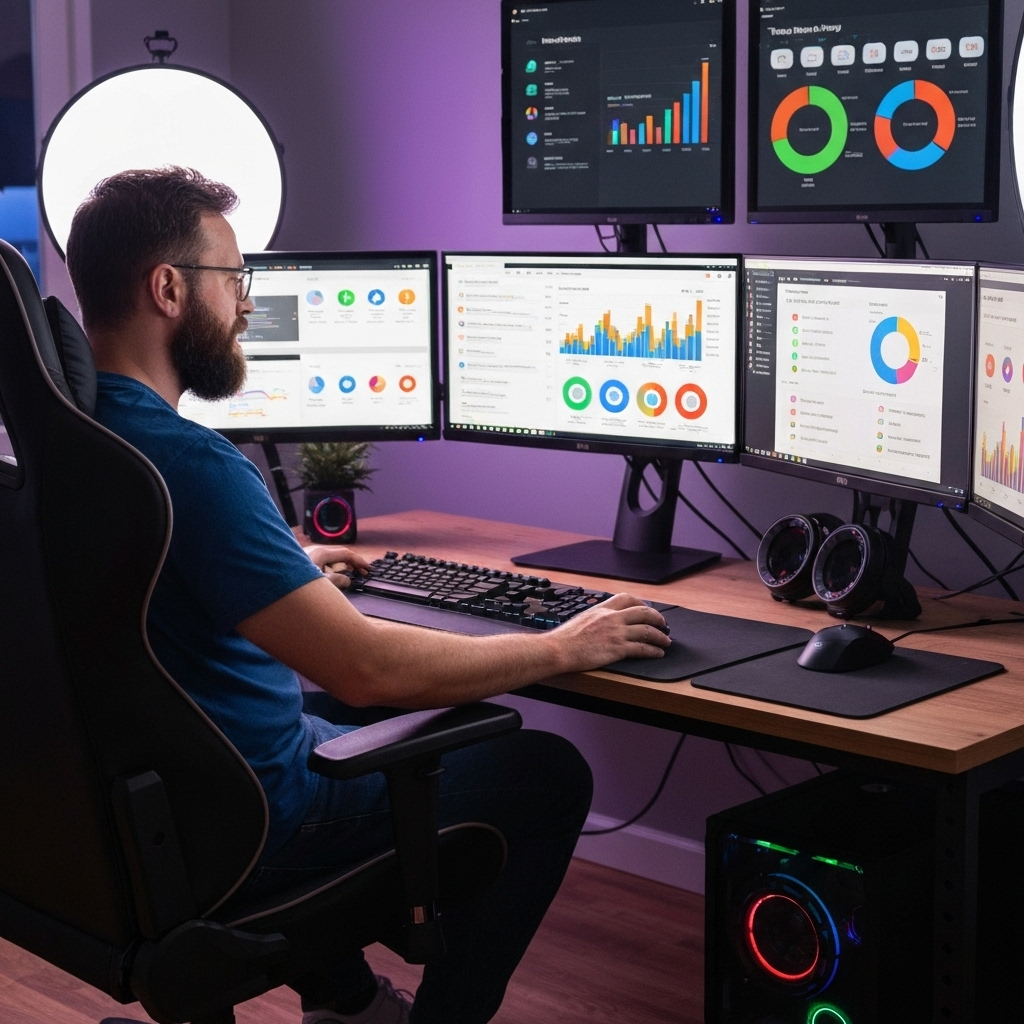The Gaming Time Challenge
Video gaming has evolved from a niche hobby to a mainstream entertainment medium, but with this growth comes a hidden challenge: time management. What starts as a quick gaming session can easily stretch into hours of time waste, impacting work, relationships, and personal goals.
Our time wasting calculator reveals that many gamers spend 20+ hours weekly gaming – equivalent to a part-time job. This comprehensive guide explores the relationship between gaming and productivity, helping you find the right balance for your lifestyle.
Gaming Time Statistics
Eye-Opening Gaming Data:
- • Average weekly gaming time: 7-8 hours (casual gamers)
- • Heavy gamers: 20+ hours weekly (1,000+ hours annually)
- • Peak gaming hours: 7 PM to 1 AM
- • Average gaming session: 2.5 hours
- • 65% of gamers report losing track of time while playing
These numbers become concerning when you consider the opportunity cost. Using our time wasting calculator, 1,000 annual gaming hours could be used to master new professional skills, complete certifications, or pursue meaningful hobbies that contribute to long-term success.
Signs of Gaming Addiction
Recognizing when gaming transitions from entertainment to time waste is crucial for maintaining a healthy balance. Here are key warning signs:
Behavioral Signs
- • Gaming for longer than intended
- • Neglecting work or school responsibilities
- • Lying about gaming time
- • Feeling anxious when unable to game
Physical Signs
- • Sleep deprivation from late-night gaming
- • Poor posture and back pain
- • Eye strain and headaches
- • Reduced physical activity
Impact on Daily Life
Excessive gaming creates a ripple effect that extends far beyond the gaming session itself. The impact on productivity and life quality includes:
Productivity Consequences:
- Reduced focus and attention span for work tasks
- Procrastination on important projects and deadlines
- Decreased time for skill development and learning
- Impaired sleep quality affecting next-day performance
- Social isolation and reduced networking opportunities
Our time wasting calculator helps quantify these impacts by showing what you could accomplish with better time management. Many users discover they could learn new languages, complete online courses, or develop valuable professional skills with their current gaming time.
Time Management Strategies
Effective gaming time management doesn't require giving up gaming entirely. Instead, it's about creating boundaries that prevent time waste while still enjoying your favorite games:
Time-Based Strategies
- • Set specific gaming windows (e.g., 7-9 PM)
- • Use timers and alarms
- • Implement gaming-free days
- • Track time with apps or our calculator
Environmental Strategies
- • Create gaming-free zones (bedroom, office)
- • Use parental controls on your own devices
- • Remove gaming apps from phones
- • Set up productivity-focused workspaces
Creating Healthy Gaming Habits
The goal isn't to eliminate gaming but to ensure it doesn't become a source of time waste that derails your other goals. Here's how to maintain a healthy relationship with gaming:
Healthy Gaming Guidelines:
- Prioritize responsibilities: Complete work and personal tasks before gaming
- Set clear limits: Decide on gaming time before you start playing
- Choose quality over quantity: Focus on games you truly enjoy rather than mindless grinding
- Take regular breaks: Follow the 20-20-20 rule for eye health
- Monitor your habits: Use our time wasting calculator to stay aware
- Find balance: Ensure gaming doesn't crowd out exercise, socializing, or learning
Remember, the most successful gamers are those who can enjoy their hobby without letting it interfere with their broader life goals. By implementing these strategies and regularly checking your habits with our time wasting calculator, you can maintain a healthy balance between gaming and productivity.
